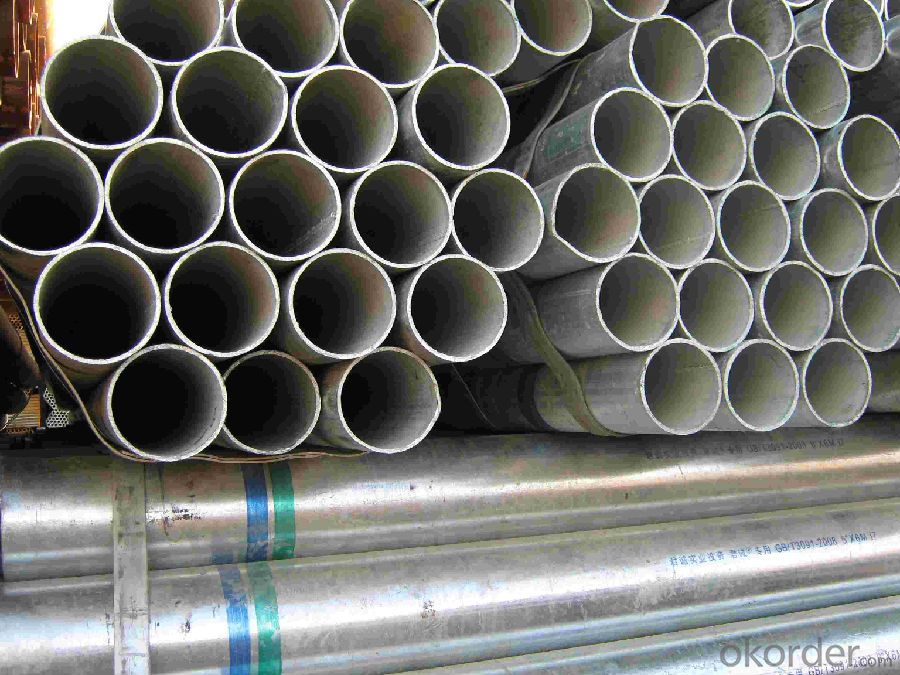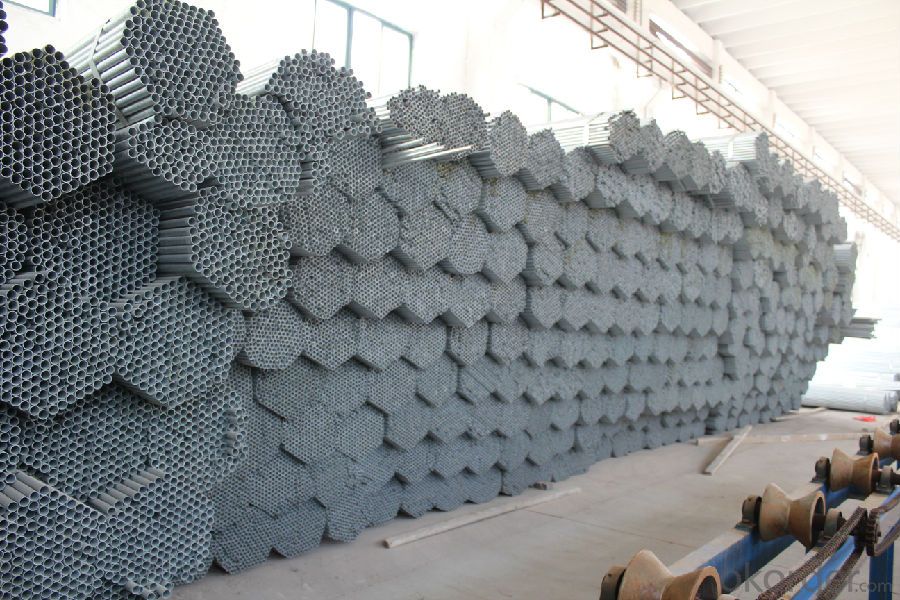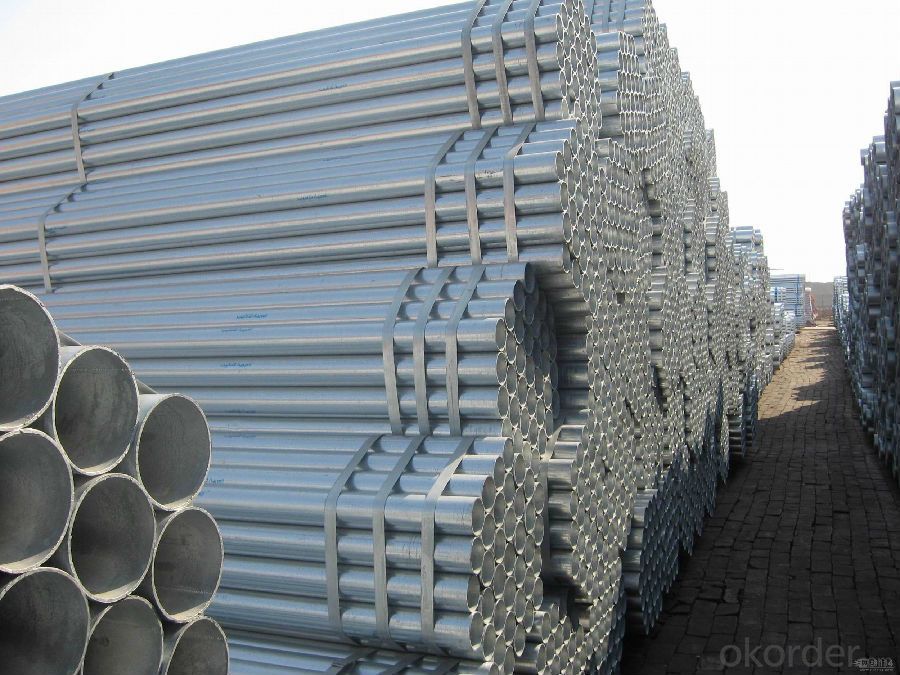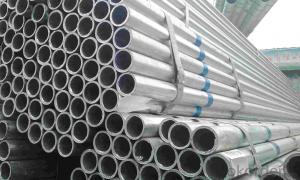seamless steel pipe seamless steel steel pipe seamless tube seamless pipes
- Loading Port:
- Tianjin
- Payment Terms:
- TT OR LC
- Min Order Qty:
- 80 m.t.
- Supply Capability:
- 4545 m.t./month
OKorder Service Pledge
OKorder Financial Service
You Might Also Like
Item specifice
1、Structure of Seamless steel pipe API ASTM GB SKT 5CT SEAMLESS TUBE SEAMLESS PIPES SEAMLESS CARBON PIPE ::
Seamless steel pipe is to be used for conveying gas, water, and petroleum foroil and natural gas industries. And used for structural steel pies purpose. As the manufacturing process does not include any welding, seamless pipes are perceived to be stronger and more reliable. Historically seamless pipe was regarded as withstanding pressure better than other types, and was often more easily available than welded pipe.
2、Main Features of Seamless steel pipe API ASTM GB SKT 5CT SEAMLESS TUBE SEAMLESS PIPES SEAMLESS CARBON PIPE :
• High manufacturing accuracy
• High strength
• Small inertia resistance
• Strong heat dissipation ability
• Good visual effect
• Reasonable price
3、Seamless steel pipe API ASTM GB SKT 5CT SEAMLESS TUBE SEAMLESS PIPES SEAMLESS CARBON PIPE : Specification:
Standard | GB, DIN, ASTM ASTM A106-2006, ASTM A53-2007 |
Grade | 10#-45#, 16Mn 10#, 20#, 45#, 16Mn |
Thickness | 8 - 33 mm |
Section Shape | Round |
Outer Diameter | 133 - 219 mm |
Place of Origin | Shandong, China (Mainland) |
Secondary Or Not | Non-secondary |
Application | Hydraulic Pipe |
Technique | Cold Drawn |
Certification | API |
Surface Treatment | factory state or painted black |
Special Pipe | API Pipe |
Alloy Or Not | Non-alloy |
Length | 5-12M |
Outer Diameter | 21.3-610mm |
Grade | 20#, 45#, Q345, API J55, API K55, API L80, API N80, API P110, A53B |
Standard | ASME, ASTM |
1) Material:20#(ASTM A 106/A53 GRB.API5LGRB,GB),45#,16Mn,10#.
2) Specification range:OD:21.3-610mm,WT:6-70mm,length:6-12m or according to the requirement of clients.
3) Excutive standards:GB,ASME API5L.ASTM A 106/A53,Despite of the above standards,we can also supply seamless steel pipe with standard of DIN,JIS,and so on,and also develop new products according to the requirements of our clients!
4) Surface:black lacquered,varnish coating or galvanized.
5) Ends:Beveled or square cut,plastic capped,painted.
6) Packing:bundles wrapped with strong steel strip,seaworthy packing.
4、Packaging & Delivery
Packaging Details: | seaworthy package,bundles wrapped with strong steel strip |
Delivery Detail: | 15-30days after received 30%TT |
5、FAQ of Seamless steel pipe API ASTM GB SKT 5CT SEAMLESS TUBE SEAMLESS PIPES SEAMLESS CARBON PIPE :
①How is the quality of your products?
Our products are manufactured strictly according to national and internaional standard, and we take a test
on every pipe before delivered out. If you want see our quality certifications and all kinds of testing report, please just ask us for it.
Guaranteed: If products’ quality don’t accord to discription as we give or the promise before you place order, we promise 100% refund.
②How about price?
Yes, we are factory and be able to give you lowest price below market one, and we have a policy that “ for saving time and absolutely honest business attitude, we quote as lowest as possible for any customer, and discount can be given according to quantity”,if you like bargain and factory price is not low enough as you think, just don’t waste your time.Please trust the quotation we would give you, it is professional one.
③Why should you chose us?
Chose happens because of quality, then price, We can give you both.Additionally, we can also offer professional products inquiry, products knowledge train(for agents), smooth goods delivery, exellent customer solution proposals.Our service formula: good quality+good price+good service=customer’s trust
SGS test is available, customer inspection before shipping is welcome, third party inspection is no problem.
6、 Seamless steel pipe API ASTM GB SKT 5CT SEAMLESS TUBE SEAMLESS PIPES SEAMLESS CARBON PIPE :



- Q:What are the advantages of using steel pipes in construction?
- There are several advantages of using steel pipes in construction. Firstly, steel pipes are incredibly strong and durable, providing excellent structural integrity and long-term reliability. They can withstand high pressure and heavy loads, making them suitable for various applications such as water and gas transportation, oil pipelines, and building frameworks. Secondly, steel pipes have a high resistance to corrosion, which ensures longevity and reduces maintenance costs. Additionally, steel pipes are versatile and can be easily customized to meet specific project requirements, as they come in various sizes, shapes, and thicknesses. Lastly, steel pipes are environmentally friendly, as they are recyclable, reducing the overall carbon footprint of construction projects.
- Q:Can steel pipes be used for wastewater treatment?
- Yes, steel pipes can be used for wastewater treatment. Steel pipes are commonly used in various stages of wastewater treatment processes, such as conveyance, distribution, and collection systems. They are durable, corrosion-resistant, and can withstand high-pressure conditions, making them suitable for transporting wastewater efficiently and safely. Additionally, steel pipes can be coated or lined to enhance their resistance to corrosion and improve their performance in harsh wastewater environments.
- Q:Can steel pipes be used for underground fire protection systems?
- Yes, steel pipes can be used for underground fire protection systems. Steel pipes are commonly used for their durability, high tensile strength, and resistance to heat and pressure. They are suitable for carrying water or fire suppression agents underground to protect against fire hazards.
- Q:Can steel pipes handle extreme weather conditions?
- Yes, steel pipes are known for their ability to handle extreme weather conditions. Steel is a durable and strong material that can withstand harsh environmental elements, including extreme temperatures, high winds, heavy rainfall, and even extreme weather events like hurricanes and tornadoes. Steel pipes are commonly used in various industries and applications, such as water and sewage systems, oil and gas pipelines, and construction projects, precisely because of their resilience and ability to withstand extreme weather conditions. Additionally, steel pipes can be coated or treated to enhance their resistance to corrosion, further increasing their ability to handle extreme weather conditions.
- Q:What is the average lifespan of steel pipes in different applications?
- The lifespan of steel pipes in different applications can vary due to various factors, such as the quality of the steel, the environment in which they are used, and the maintenance and care they receive. Water supply lines typically have steel pipes that can last around 50 to 70 years on average. These pipes are often made of high-quality steel and experience less corrosive environments. However, the presence of corrosive substances, water chemistry, and soil conditions can significantly impact their lifespan. For industrial applications like oil and gas pipelines, steel pipes generally have a lifespan ranging from 20 to 50 years. These pipes are exposed to aggressive environments with high temperatures, pressure, and corrosive substances. Extending their lifespan can be achieved through regular inspections, maintenance, and corrosion protection measures. In construction applications, steel pipes used for structural purposes can last an average of 50 to 100 years or longer. These pipes are designed to withstand heavy loads and are often safeguarded by coatings or insulation to prevent corrosion. It's important to understand that these are average lifespans, and individual pipes may have shorter or longer lifespans depending on specific conditions. Ensuring the longevity of steel pipes in different applications can be achieved through regular inspections, maintenance, and timely repairs or replacements when necessary.
- Q:What are the advantages of using stainless steel pipes?
- There are several advantages of using stainless steel pipes. Firstly, stainless steel pipes have excellent corrosion resistance, making them suitable for a wide range of applications, including industrial, commercial, and residential plumbing systems. They can withstand harsh environments, chemicals, and high temperatures without deteriorating or rusting. Secondly, stainless steel pipes have high strength and durability, ensuring long-term reliability and reducing the need for frequent repairs or replacements. They can handle high pressure and stress, making them suitable for transporting fluids and gases in various industries. Additionally, stainless steel pipes are hygienic and easy to clean, making them ideal for applications in the food, beverage, and pharmaceutical industries. They are resistant to bacterial growth and contamination, ensuring the integrity and safety of the transported materials. Furthermore, stainless steel pipes are aesthetically pleasing and can be easily customized to fit different design requirements. They offer a sleek and modern appearance, making them suitable for architectural and decorative purposes. Overall, the advantages of using stainless steel pipes include corrosion resistance, durability, strength, hygiene, and aesthetic appeal, making them a reliable and versatile choice for various industries and applications.
- Q:Can steel pipes be used for sewage treatment plants?
- Yes, steel pipes can be used for sewage treatment plants. Steel pipes are durable and resistant to corrosion, making them ideal for handling sewage and wastewater in such facilities. They are commonly used for conveying and distributing sewage, as well as for constructing various components like pipelines, pump stations, and treatment tanks. Additionally, steel pipes can withstand high pressure and are available in various sizes, making them suitable for the diverse needs of sewage treatment plants.
- Q:What are the different types of steel pipe coatings for corrosive environments?
- There are several types of steel pipe coatings that are commonly used for corrosive environments. These include fusion bonded epoxy (FBE) coating, three-layer polyethylene (3LPE) coating, three-layer polypropylene (3LPP) coating, and coal tar enamel (CTE) coating. FBE coating provides excellent corrosion resistance and is commonly used for underground pipelines. 3LPE and 3LPP coatings combine a layer of epoxy, an adhesive layer, and a polyethylene or polypropylene outer layer, offering superior protection against corrosion and mechanical damage. CTE coating, although less common nowadays, is still used for certain applications due to its resistance to water and chemical corrosion.
- Q:How are steel pipes used in the construction of wastewater treatment plants?
- Steel pipes are commonly used in the construction of wastewater treatment plants due to their durability, strength, and corrosion resistance. These pipes are used to transport wastewater from different points within the treatment plant, such as pipes for raw sewage, sludge, and treated water. Additionally, steel pipes are also used for structural purposes, such as supporting tanks and other equipment. Overall, steel pipes play a crucial role in the efficient and reliable operation of wastewater treatment plants.
- Q:How are steel pipes protected from corrosion in corrosive environments?
- Steel pipes are protected from corrosion in corrosive environments through various methods such as applying protective coatings, using cathodic protection systems, and implementing corrosion inhibitors.
1. Manufacturer Overview |
|
|---|---|
| Location | |
| Year Established | |
| Annual Output Value | |
| Main Markets | |
| Company Certifications | |
2. Manufacturer Certificates |
|
|---|---|
| a) Certification Name | |
| Range | |
| Reference | |
| Validity Period | |
3. Manufacturer Capability |
|
|---|---|
| a)Trade Capacity | |
| Nearest Port | |
| Export Percentage | |
| No.of Employees in Trade Department | |
| Language Spoken: | |
| b)Factory Information | |
| Factory Size: | |
| No. of Production Lines | |
| Contract Manufacturing | |
| Product Price Range | |
Send your message to us
seamless steel pipe seamless steel steel pipe seamless tube seamless pipes
- Loading Port:
- Tianjin
- Payment Terms:
- TT OR LC
- Min Order Qty:
- 80 m.t.
- Supply Capability:
- 4545 m.t./month
OKorder Service Pledge
OKorder Financial Service
Similar products
New products
Hot products
Related keywords





























